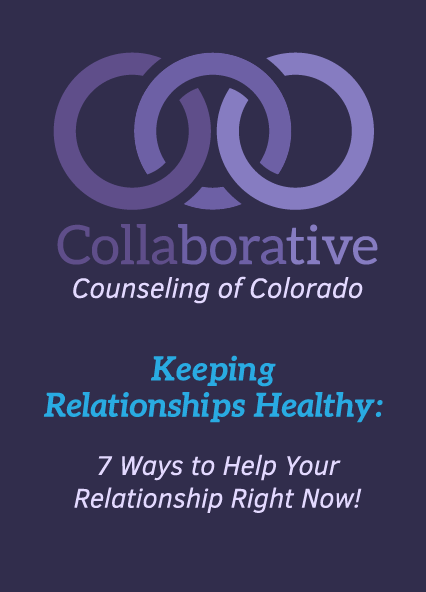You’re doing your best. You’re showing up for work, paying the bills, and maybe even squeezing in a gym session when you can. But somehow, at 28, you still have three roommates, a career that feels “temporary,” and a savings account that looks more like a mirage than a reality. Your college friends are buying houses and posting engagement photos, while you’re swiping through dating apps, wondering if you’ll ever find “the one.” You have three different career paths mapped out in your head, and somehow, none of them feel quite right.
Sound familiar?
If you’re in your twenties or early thirties and feeling “behind,” you’re not alone—and more importantly, you’re not failing.
The Myth of the “Clean Timeline”
Here’s the truth that nobody talks about enough: the traditional roadmap of college → stable job → marriage → house → kids is essentially obsolete. That neat, linear path your parents or grandparents might have followed? It doesn’t exist anymore, and pretending it does only makes the journey harder.
What you’re experiencing has a name: Emerging Adulthood. Coined by psychologist Jeffrey Arnett, this concept recognizes that the transition to full adulthood now extends well into the late twenties and even early thirties. This isn’t laziness or failure to launch—it’s a legitimate developmental stage shaped by profound economic, social, and cultural shifts. It’s a time of exploration, self-definition, and, yes, uncertainty.
At Collaborative Counseling of Colorado, we see this every day in our work with emerging adults in Denver. The challenge you’re facing isn’t a personal shortcoming. It’s the new structural reality. Today’s version of “adulting” is fundamentally different from previous generations, and understanding why can be the first step toward navigating it with self-compassion instead of self-criticism.
Why It’s Different Now: The Three Pillars of Delay
The Financial Pressure Cooker (The Wallet)
Let’s start with the elephant in the room: money. For many Millennials and Gen Zers, financial independence feels perpetually out of reach. The economic landscape facing young adults today is vastly different from what previous generations encountered.
Student loan debt has reached unprecedented levels, with many people in their twenties carrying five or six figures of educational debt. This financial burden doesn’t just delay milestones like homeownership or starting a family—it fundamentally reshapes every major life decision you make.
And if you’re in Denver? The local cost of living adds another layer of complexity. With median rent for a one-bedroom apartment hovering around $1,800-$2,000 and the housing market remaining highly competitive, achieving financial independence feels like a moving target. That “less fulfilling but higher-paying job” suddenly becomes not just tempting but necessary, creating inner conflict between following your passion and paying your bills.
The rise of the gig economy compounds this uncertainty. While previous generations could expect stable, long-term employment with benefits and predictable raises, today’s work landscape is increasingly characterized by contract positions, freelance gigs, and the constant need to hustle. The precarity is exhausting, and it makes planning for the future feel nearly impossible.
Even for those with steady jobs, the gig economy has reshaped what “work” means—offering flexibility but often at the cost of benefits and security. It’s hard to plan a future when the ground beneath you feels uncertain. These realities directly impact Work and Career Issues, often fueling anxiety and chronic stress.
The Career Conundrum (The Résumé)
Remember when choosing a career path felt straightforward? Neither do most people your age.
You were told to “follow your passion,” but what if you’re not sure what that is? The modern job market presents a paradox of choice that can be paralyzing. With countless career paths available—many of which didn’t even exist a decade ago—the fear of committing to the “wrong” choice can lead to analysis paralysis. What if you invest years in one direction only to realize it’s not right for you?
Then there’s the pressure of perpetual learning. The skills that got you your first job might be outdated in three years. Certifications, additional degrees, online courses, professional development—the expectation to constantly upskill can lead to educational burnout before you’ve even established your career.
And let’s talk about the job-hopping dilemma. There’s this tricky question of loyalty. You’ve probably heard that staying at one company means losing out on significant salary increases. Should you stay and build stability, or jump to a new job for a better salary? Job-hopping is often necessary to keep up financially, but it can also leave you feeling rootless and unsure of your professional identity, without the mentorship and deep expertise that comes from sustained focus. You’re damned if you stay, restless if you go.
The Social & Emotional Overload (The Brain)
If the financial and career pressures weren’t enough, there’s the mental load of navigating it all in the age of social media. Even when everything looks fine on the outside, your inner world might tell a different story. Social media comparison amplifies self-doubt, showing only highlight reels of other people’s lives. It’s easy to believe everyone else has it figured out—except you.
Instagram and LinkedIn posts highlighting engagement announcements, job promotions, home tours—the constant stream of other people’s milestones can make your own journey feel inadequate by comparison. What you don’t see are the struggles, the debt, the anxiety, the late-night doubt that everyone else is experiencing too.
Perhaps most significantly, your generation entered adulthood during unprecedented global instability. The Great Recession, the pandemic, political turbulence, climate anxiety, and cultural polarization—these aren’t just background noise. They’re formative experiences that have created a baseline of uncertainty and stress that previous generations didn’t navigate at this life stage. They’re what some psychologists call a “trauma hangover.” You’re not just trying to figure out your career; you’re doing it while wondering if the world will even be stable enough to support the life you’re building. Living in constant uncertainty takes a toll on emotional well-being and makes stress management and anxiety therapy more vital than ever.
How This Uncertainty Impacts Your Mental Health
These external pressures don’t stay external for long. They seep inward, affecting your mental health in profound ways.
Anxiety becomes a constant companion when your future feels uncertain. The worry about whether you’ll ever afford a house, whether you’re in the right career, whether you’ll find a partner—this chronic future-focus keeps your nervous system on high alert.
Identity diffusion is another common experience. When the markers you expected to define you by age 28 or 30 haven’t materialized, you might feel lost. Who are you if you’re not where you “should” be? This disconnect between your imagined life and your actual life can be deeply destabilizing.
And when goals feel perpetually out of reach despite your best efforts, depression can set in. That sense of hopelessness or failure isn’t a character flaw—it’s a natural response to systemic barriers and unrelenting pressure.
When life doesn’t look the way you expected, it’s normal to feel anxious, confused, or even hopeless. But those feelings aren’t signs of failure; they’re signals asking for attention and care. Therapy can help translate that confusion into clarity by naming what’s really happening beneath the surface and offering tools to manage it.
The Collaborative Counseling Approach: Finding Your Own Path
At Collaborative Counseling of Colorado, we specialize in helping emerging adults navigate these exact challenges. Whether you’re questioning your career path, struggling with anxiety, or feeling “stuck” in your late 20s or early 30s, our therapists are here to help you find direction and peace of mind.
This is where therapy becomes not just helpful, but transformative.
Redefining Success on Your Terms
Some of the most powerful shifts therapy can offer are redefining success on your own terms and learning to de-internalize systemic failures. When you’ve been told your whole life that success looks a certain way, it’s revolutionary to realize that those standards may not apply to your reality or align with your values.
Instead of measuring your worth by external milestones (salary, relationship status, or homeownership), therapy provides a space to define success based on your own internal metrics. What matters to you? What brings you fulfillment? What aligns with your values? These questions matter more than your job title, your salary, or whether you’re married by a certain age. Developing self-compassion becomes the foundation for building a life that actually feels authentic. This process helps you de-internalize systemic pressures, seeing clearly that it’s not a personal failing if you’re not where society says you “should” be.
Practical Skill-Building for Stress Management
Uncertainty is stressful, but you can learn to manage it. Through approaches like Cognitive Behavioral Therapy (CBT) and stress management techniques, you can identify and challenge the thought patterns that fuel anxiety and learn to manage uncertainty more effectively. When your brain tells you that you’re failing because you don’t own a home at 28, CBT helps you examine that belief and replace it with something more realistic and compassionate.
Creating small, achievable goals together with your therapist is another key strategy. When the big picture feels overwhelming, breaking it down into manageable steps helps you regain a sense of control and momentum. Progress doesn’t have to be dramatic to be meaningful. Therapy isn’t about fixing you—it’s about helping you feel empowered in the face of change.
The Value of the Therapeutic Relationship
Perhaps most importantly, therapy offers something that’s increasingly rare: a judgment-free space to discuss the messy, non-linear reality of life. Your friends might be tired of hearing about your career confusion. Your family might not understand why you can’t just “figure it out.” But a therapist? They’re trained to help you navigate this exact transitional phase.
This relationship becomes a container for self-discovery, allowing you to explore who you are and who you want to become without the pressure of having all the answers right now. Many of our clients describe this relationship as a grounding anchor during a turbulent phase of life. In therapy, you don’t have to have it all figured out—you just have to show up as you are.
You’re Not Behind—You’re Navigating Uncharted Territory
If there’s one thing to take away from this, it’s this: emerging adulthood is a marathon, not a sprint. The confusion you feel isn’t a sign of failure—it’s a sign of complexity. It’s a time for exploration, growth, and yes, getting lost and finding yourself again. You’re navigating economic conditions, career landscapes, and social pressures that no previous generation has faced in quite this combination.
The uncertainty you feel isn’t a flaw; it’s a reflection of your depth and desire for a meaningful life. The fact that you’re thinking deeply about these issues, that you’re aware of the gap between where you are and where you thought you’d be—that’s not evidence that you’re behind. It’s evidence that you’re thoughtful, self-aware, and brave enough to face uncertainty head-on.
You don’t have to figure it all out alone. At Collaborative Counseling of Colorado, our Denver therapists specialize in working with emerging adults navigating exactly these challenges. Whether you’re struggling with work and career issues, managing anxiety about the future, or simply trying to define what success means for you, we’re here to help you find your own path.
Ready to trade the pressure of the timeline for the freedom of self-discovery? Our therapists are here to help you navigate this season with clarity and compassion and partner with you in building a life that feels authentic, fulfilling, and entirely your own.
Schedule an appointment today or contact us to learn more about how therapy can support you through this transitional phase. You don’t need to have it all figured out to take the first step.

